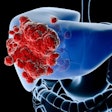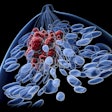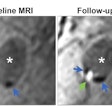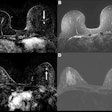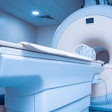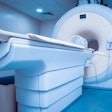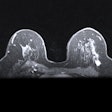Massachusetts radiologists have been able to eliminate new cases of nephrogenic systemic fibrosis (NSF) since 2007 by measuring a patient's glomerular filtration rate before administering a gadolinium-based contrast agent (GBCA), according to a study to be published in the July issue of Radiology.
Most importantly, the researchers at Massachusetts General Hospital (MGH) and Harvard Medical School have determined that gadolinium contrast should not be administered at all to patients currently undergoing dialysis or those with a very low estimated glomerular filtration rate (eGFR) (less than 30 mL/min/m2). Those patients are most susceptible to NSF.
However, a maximum GBCA dose of 20 mL for patients with a low eGFR (less than 60 mL/min/m2) is acceptable.
MGH instituted restrictive guidelines on the administration of gadolinium contrast in 2007, which have since prevented any new cases of NSF.
The adverse reaction to the contrast agent is characterized by widespread tissue fibrosis. Patients with NSF experience an increase of collagen in the tissues, causing thickening and hardening of the skin at the extremities, and often resulting in immobility and tightening or deformity of the joints.
Lead study author Dr. Hani Abujudeh, associate professor of radiology at Harvard, said it is important for the public to know that gadolinium agents are safe for most patients, and the risk of NSF should not deter them from GBCA-enhanced exams such as MRI studies.
The hospital's guidelines require that a blood test be performed for patients older than 60 or those who are at risk for kidney disease. From the blood test, the facility can estimate GFR, which measures the rate of fluid flow through the kidneys.
Abujudeh and colleagues reviewed the hospital's medical records from January 2002 through December 2007. Prior to adopting the guidelines and during the transition period, 113,120 contrast-enhanced MRI exams were performed, and 34 cases of NSF were subsequently identified.
After guidelines were enacted, 52,954 contrast-enhanced MRIs were performed, with no new cases of NSF identified.
Abujudeh said the findings prove that contrast administration guidelines are effective, and strategies can be put into practice to ensure patient safety during gadolinium contrast use.



.fFmgij6Hin.png?auto=compress%2Cformat&fit=crop&h=100&q=70&w=100)

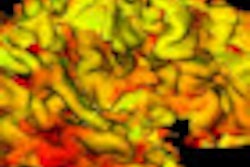
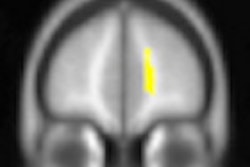
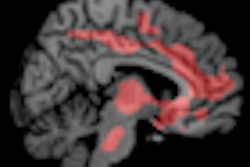
.fFmgij6Hin.png?auto=compress%2Cformat&fit=crop&h=167&q=70&w=250)

